A recent study suggests that parents just getting silly with their kids can prevent problem behaviors like ADHD and aggression. Children, as it turns out, love it when their parents get silly with them. That could mean anything from using funny voices for characters in a storybook, or tapping the child’s nose when reading the word “nose.” And it seems that the benefits of getting silly with kids aren’t exclusive to story time. Any time you are playful with your children, you’re helping to shape their social and emotional development and behavior in a most positive way.
The study, Reading Aloud, Play and Social-Emotional Development (Pediatrics, February 2018), offered a special invention called the Video Interaction Project (VIP) to 225 families with children aged newborn to five years. In the VIP intervention, a program dating back to 1998, a parenting coach spends time with parents discussing their developmental goals for their children during a regular visit to the pediatrician. Parents are given age-appropriate educational toys and books to take home for their children. Then parents are directed to read to and play with their children and the session is captured on videotape. The parenting coach then has the parents watch the videotape, pointing out how children respond to the different thing parents do as they spend time with their children.
“They get to see themselves on videotape and it can be very eye-opening how their child reacts to them when they do different things,” said Adriana Weisleder, a co-author of the study, speaking to the New York Times. “We try to highlight the positive things in that interaction—maybe they feel a little silly, and then we show them on the tape how much their kid loves it when they do these things, how fun it is—it can be very motivating,” concludes Weisleider, who serves as an assistant professor in the Department of Communication Sciences and Disorders at Northwestern University.
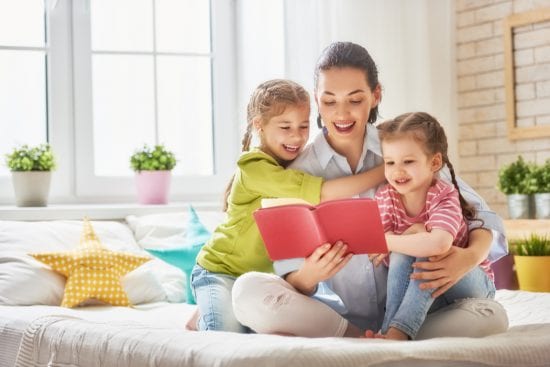
As it turns out, the Video Interaction Project had already proven its worth before this most study took place. An earlier study funded by the National Institute of Child Health and Human Development found that 3-year-olds who had received the intervention had better behavior than those in the control group. They were far less likely to be hyperactive or aggressive than the children who received no intervention at all.
What the new study did was look at those same children a year and a half later, as the children neared the age of school entry. Were those early improvements in behavior still there? Did it really make that much of a difference in a child’s behavior when the playfulness of a parent/child interaction was pointed out to parents? The answer turns out to be yes, absolutely. The children whose families took part in those early interventions had better behavior. They didn’t have attention difficulties, weren’t hyperactive, showed less aggression. And these are the behaviors that can get in the way of a schoolchild’s learning.
The new study also had older children (3-5 years) receive a second intervention. The positive benefits of intervention were all the stronger for the extra “dose” the children received. After all, the intervention pushes positive parenting and the more of that, the better. Fact.
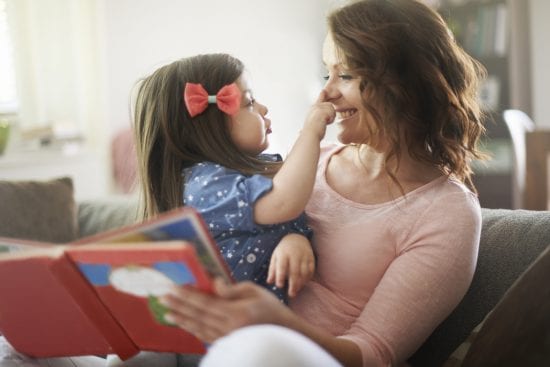
This is important because the children who take part in the VIP intervention are from low-income families. These children are at greater risk for ADHD and other behavior problems. Children who come to school with behavior issues are less likely to do well in school and get ahead.
What parents should learn from all this is that even if you have no money to spend on clothes for your children or fancy private schools, you can read to, play with, and get silly with your child and it will have a huge positive impact on your child’s emotional and social development, and his or her academic success, too. Dr. Weisleder explains that when parents read to and play with their children, they confront challenges that are outside their everyday experiences. Adults can help children think about how they can deal with these situations.
It could be simpler than that, of course. Getting silly with your kids means bonding with them, having a good time together. “Maybe engaging in more reading and play both directly reduces kids’ behavior problems because they’re happier and also makes parents enjoy their child more and view that relationship more positively,” says Weisleder.
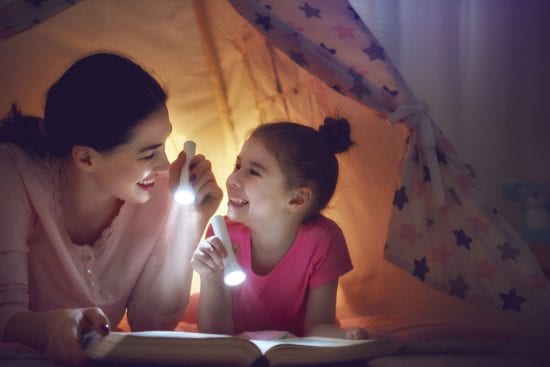
10 Suggestions for Getting Silly
We absolutely agree. And maybe we don’t need to analyze this so closely, but make sure instead to spend lots of time both reading to our children and getting silly with them. To that end, we offer 10 suggestions for getting silly with your kids (feel free to add to our list!):
- Hand-washing Fun. Sing “Happy Birthday” twice every time your child washes her hands (you too!). This is the amount of time needed to rinse off those germs with hot sudsy water. But a song makes washing fun and there’s just something ridiculous about singing happy birthday out of context.
- Dance Out Your Emotions. Put on some music and dance it out together with your child! Or call out emotions like “Happy” or “Sad” to your child and have her dance the different feelings as you name them.
- Tell A Silly Story Together. Take turns telling a story, breaking off at random with one of you taking up the narrative where the other leaves off (and so forth).
- Have a water balloon fight! Fill a bucket with tiny water balloons (water bombs). Then go to the nearest sports field and have at it. See who can throw the farthest. Getting wet is all part of the fun.
- Turn Getting Dressed Into a Game. For a toddler who hates getting dressed, turn it into a game. “Here comes the Zipper Monster” you can say as you pull up that zipper and make your child squeal with happy surprise. Or tease, “Where’s your head? Where are your arms?? Oh my, I can’t find them at all!” as you pull your child’s sweater over her head and arms.
- Use Funny Voices During Story Time. Use different voices for the characters (including animal characters!) in your child’s bedtime story to make the story come alive for her.
- Make a Silly Shadow Show. After you turn out the overhead lights leaving only the night light, make an awesome animal shadow show with your child on her bedroom wall. Make those shadows talk to each other, bump into each other, and fake yell at each other.
- Compose a Silly Family Symphony. At the dinner table, nod at each member of the family to add a phrase of made-up music or percussion. As each person joins in, you’ll have a crazy music round that sounds like a broken symphony! Keep it going until you all crack up laughing, then begin again, with new sounds and melodies.
- Speak Pig Latin. Teach your child Pig Latin and then have an entire conversation in that language!
- Make Silly Orange Wedge Smiles. Cut an orange into wedges. Eat the fruit, leaving the rind intact. Put the peels in your mouths over your closed teeth. Orange you glad you smiled? For a variation on this theme, top fingers with raspberry “caps” for instant “manicures.”
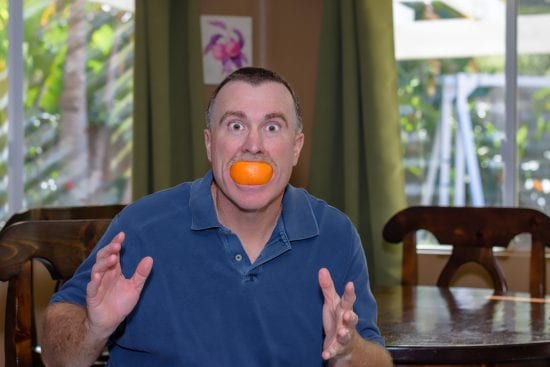
Found what you just read useful? Why not consider sending a donation to our Kars4Kids youth and educational programs. Or help us just by sharing!
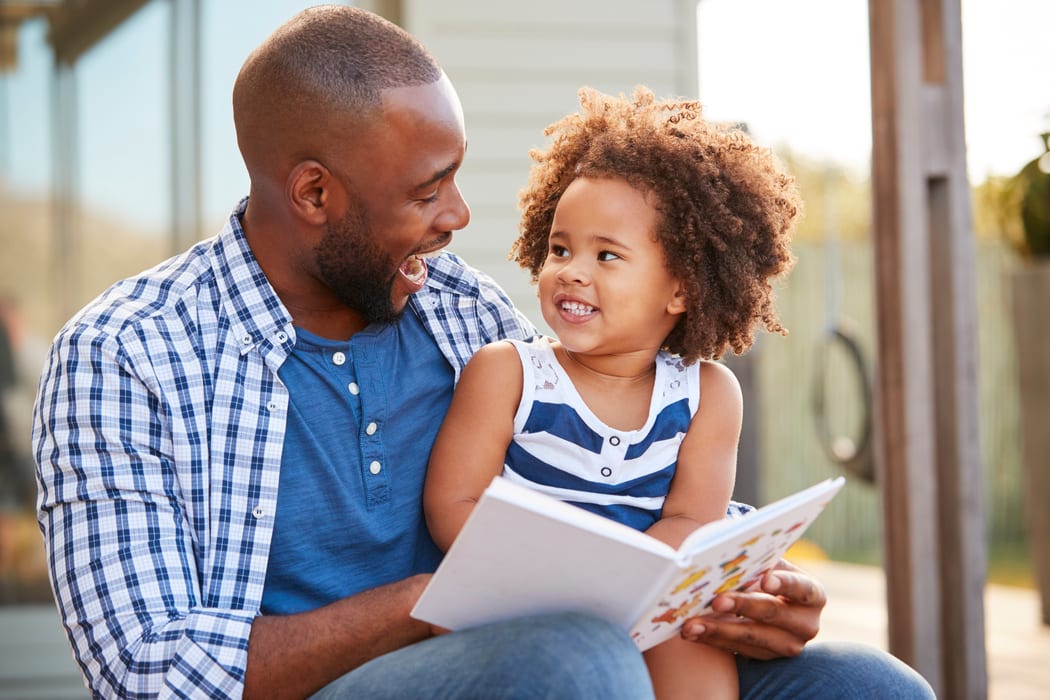
I like your idea of dancing with your child to help encourage getting silly. My brother and his wife have been struggling with their oldest daughter since she getting more independent. I think it would be smart for them to look into hiring a parenting coach that can help them be sillier with her as well as figure out other ways they can better help her.